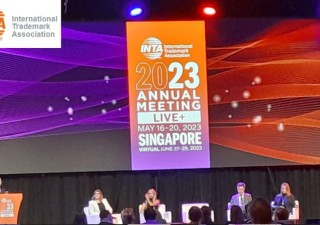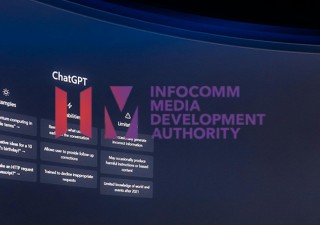Singapore Passes Amended Copyright Act
15 August 2014

The Singapore parliament has recently passed amendment to the Copyright Act.
In addition to amending the act to afford persons with reading disabilities greater opportunities to access copyrighted works in line with the Marrakesh Treaty, one key measure of the amendment is to allow rights owners to obtain blocking orders against infringing websites. They will now be able to apply directly to the court, instead of having to first establish a network service provider’s liability for copyright infringement, according to Senior Minister of State for Law Indranee Rajah at the second reading of the bill.
The avenue of obtaining “siteblocking” injunctions will be effective to take down infringing websites. The current regime of serving “notice and take-down” on a network service provider (NSP) requiring it to disable access or remove infringing material does not always succeed, says Stanley Lai, partner and head of the intellectual property practice at Allen & Gledhill in Singapore. It is not a statutory requirement to comply with a take-down notice. If an NSP does not comply with a “notice and take-down” notice, he says the rights owner will have to establish liability on the part of the NSP for copyright infringement, and compel it by injunction to disable access or remove infringing material.
Following the amendment of the Copyright Act, it will not be necessary to establish liability against the NSP when obtaining an injunction under the new Section 193DDB. This may mean earlier resolution of the matter, and will be a no-fault regime for NSPs. Although the notification of website owners is required under the amendments, it is also recognized that anonymity in cyberspace may render notification a challenge, and to this end, the Court may in certain circumstances dispense with notification, says Lai.
With copyright piracy over the internet, Cheah Yew Kuin, local principal of the intellectual property practice group at Baker & McKenzie.Wong & Leow in Singapore, says there is not going to be any magic bullet or one-sizefits- all solution. However, this new amendment will add a valuable tool in the arsenal of rights owners to assist them in their fight against online piracy, he says.
Once the first few applications are successful, one should see the number of infringing downloads decrease following the implementation of the amendment, Lai says.
“Once the new amendments are fully in place, rights owners should be more encouraged to implement new initiatives to fight against online infringement,” says Cheah. “I believe some will take advantage of these new provisions and take action against websites which flagrantly distribute infringing content. In particular, both the film and music industries have been lobbying for such enhanced enforcement measures as they are the industries most significantly hit by internet piracy. We would certainly expect members from these industries to take advantage of these new amendments once they are fully implemented.”
George Hwang, director at George Hwang LLC in Singapore says if the law is to be effective, it needs to change the mindset of the internet users. “This is the root of the problem. To be truly effective, the law should make it easy for copyright holders to prosecute home infringers.”
Singapore has often used the law as an educational instrument, says Hwang. “Where the law does not affect the home infringers directly, we are not likely to see much of a change in the long run. The music and film industry has been ‘educating’ the public for at least 30 years. Where copyright infringement is not perceived as theft, few are likely to refrain from a simple click.”
The biggest challenge faced by rights owners is the ease with which infringing content can be distributed over the internet, says Cheah. In addition, savvy infringers hide behind multiple layers of protection, making them difficult to locate. Websites which are taken down can also be easily moved to new and alternative locations on the internet. “Despite these challenges, the new amendments provide rights owners with another manner to control the flow of infringing content by hindering a user’s access to these infringing websites,” he says.
Lai further notes that there are other challenges that should be considered. With many websites, he says the content may be mixed subject matter, comprising both infringing and legitimate material. Under the new Section 193DDB regime, these sites may not necessarily constitute “flagrantly infringing online occasion.” The amendment sets out nonexhaustive statutory considerations to determine whether a website blatantly infringes copyright. In time, Lai says the Courts will set the parameters as to what constitutes a “flagrantly infringing online location” for a Section193DDB injunction to apply, and the common law will evolve to define the scope of these siteblocking orders.
From the perspective of a NSP, Cheah says “we see NSPs taking a more proactive role to work with rights owners to fight internet piracy.” One reason is that increasingly, more network service providers are themselves becoming content providers. As such, it would directly benefit such network service providers to work hand in hand with rights owners to stop internet piracy, he says.
The amendments will require that the NSPs evolve beyond the role of being mere conduits of transmission, and implement actual disablement of access to infringing websites. Much more will be expected of NSPs, and their subscribers will also have to understand the ramifications, says Lai.
The court will also consider protestations that go beyond the question of whether a website is the proper target for site blocking, including the technical feasibility and burden of compliance with such an injunction, and any consequential effect this may have on the NSP’s business and operations, Lai says, adding that procedural safeguards also exist for NSPs to apply to vary or revoke site blocking orders.
Rajah cited the statistics by Vobile’s independent 2012 survey, Singapore ranked 4th out of 18 countries in Asia, and 12th out of 38 countries globally, in terms of the number of downloads of infringing content per internet user.
One possible reason for the high level of internet piracy in Singapore may be the perceived lack of consequence of enforcement or action being taken against users who download such infringing content, says Cheah. There is also a false sense of entitlement among the younger population to free content over the internet. “While this is not something that can be changed overnight, it is hoped that with an increased level of public education and stronger enforcement actions being taken, we can slowly change the public’s attitude and reduce the level of internet piracy within Singapore.”
“From what I can see, the success of the music industry in countries where flagrantly infringing sites have been blocked, they have been working with payment systems,” says Hwang. These systems refuse to work with copyright infringers. Where there is no revenue, they naturally close down. Such an initiative has to come from the private sector, he says.

Lawyers hope that with an increased level of public education, authorities can slowly reduce the level of internet piracy within Singapore.






